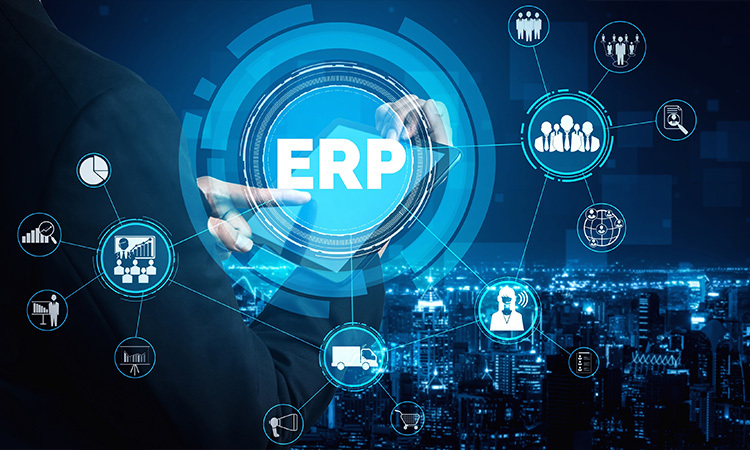Running a business is not easy. You have to manage many things sales, inventory, accounts, employees, customers, suppliers, and more. Doing all of this manually or using different software for each task can be confusing and time-consuming. This is where ERP comes in.
What Is ERP?
ERP stands for Enterprise Resource Planning. It is software that helps you manage all parts of your business in one place. Instead of using different systems for accounting, sales, inventory, and HR, ERP brings everything together in one system. This helps you work faster, smarter, and more efficiently.
Think of ERP as the central brain of your business. It connects all departments so they can share information and work together smoothly.
How Does ERP Work?
ERP works like a big database that stores all your business information. All departments—like sales, accounts, HR, and inventory—use the same system. For example:
- When a sale is made, the ERP system updates the inventory automatically.
- The accounts team can see the sale and prepare the invoice quickly.
- The HR department can track the work of the employees involved in the sale.
Since all the information is stored in one place, it is always updated and correct. This helps reduce mistakes and saves a lot of time.
Key Features of ERP
Here are some of the common features of ERP software:
- Accounting and Finance: Manage income, expenses, invoices, and taxes.
- Inventory Management: Track stock levels, orders, and deliveries.
- Sales and CRM: Keep records of customers, leads, and sales activities.
- Human Resources (HR): Manage employee records, attendance, and payroll.
- Purchasing and Suppliers: Handle purchase orders and supplier details.
- Reports and Analytics: Get clear reports to make better business decisions.

Why Does Your Business Need ERP?
Now that you know what ERP is, let’s understand why your business needs it:
1. Better Organization
With ERP, all your business data is in one place. You don’t have to search for files in different systems or folders. Everything is organized and easy to find.
2. Save Time
Since ERP automates many tasks, your team can save a lot of time. For example, you don’t need to enter the same data in different systems. ERP does it once and updates everywhere.
3. Fewer Mistakes
When people enter data in different systems manually, there is a higher chance of mistakes. ERP reduces this risk by using one system for everything.
4. Real-Time Information
ERP shows real-time data. You can see current stock levels, sales reports, or pending payments any time you want. This helps you take quick and smart decisions.
5. Improved Teamwork
ERP connects all departments. So, sales can talk to accounts, and accounts can talk to inventory, all through one system. This improves communication and teamwork.
6. Customer Satisfaction
When your business runs smoothly, your customers are happy. You can deliver products faster, send correct invoices, and provide better service—all thanks to ERP.
7. Helps You Grow
As your business grows, you need better systems to handle more work. ERP is made to grow with your business. You can add more features, users, and locations as needed.
Who Should Use ERP?
ERP is not just for big companies. Small and medium businesses can also benefit from ERP. If your business has more than one department or you find it hard to manage daily operations, ERP can help you a lot.
Some industries that use ERP include:
- Retail and Wholesale
- Manufacturing
- Construction
- Healthcare
- Education
- Real Estate
- Service Providers
Whether you sell products, offer services, or manage projects, ERP can make your work easier and faster.
Cloud ERP vs. Traditional ERP
There are two main types of ERP:
- Traditional ERP: Installed on your office computers. You need to maintain the system yourself.
- Cloud ERP: Hosted on the internet. You can use it from anywhere, and the provider manages updates and security.
Today, many businesses prefer cloud ERP because it is easy to use, secure, and available anytime, anywhere.
Final Thoughts
In simple words, ERP is a powerful tool that helps you manage your business better. It saves time, reduces errors, and improves teamwork. Whether you are running a small shop or a large company, ERP can help you organize your work and grow faster.
If you are still using spreadsheets or separate software for each department, now is a good time to think about moving to an ERP system. It will make your business more professional, efficient, and ready for the future.

